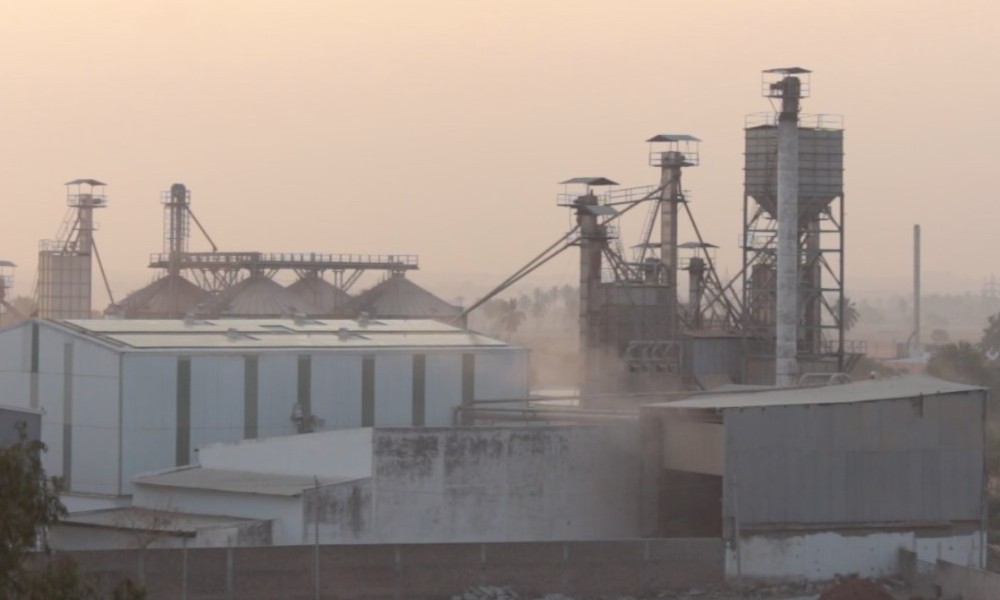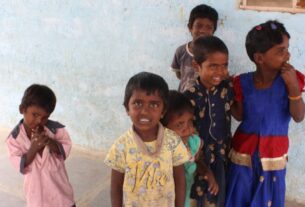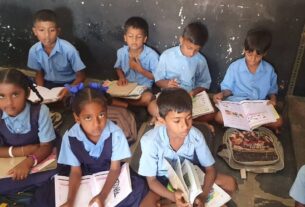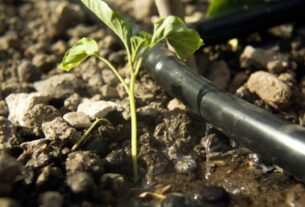More than 40-50 patients visited the hospital in between October and December 2023 with symptoms like coughing and lack of breath.
Gangavathi, a taluk in Koppal district of Karnataka is one of the main commercial areas in Kalyan Karnataka region due to its rice production. Being the rice bowl of Karnataka there are more than 150 mills here in close proximity to the villages. The husk and fumes from these mills is causing breathing-related disorders among the villagers.
Basawaraj, a resident of Varddarahatti village in the taluk suffers from tuberculosis(TB). He was diagnosed with TB in 2022. A year later his condition has deteriorated. Due to severe coughing and breathing he was admitted to the hospital for two weeks. Doctors have advised him not to speak.
“It’s been 15 days since we have admitted him here. There’s some relief but the doctor has said to visit the hospital regularly for the next two months only then we can see some improvement. He is facing a lot of difficulties while breathing,” said Sheikh Mohammad, Basawaraj’s friend.
In Gangavathi many people are suffering from breathing disorders. Data from government sub-division hospital, Gangavathi shows more than 500 cases of respiratory diseases in between 2021-2023. Channa Basawa, a resident of Mallapur, is suffering from bronchitis . He is unable to attend college and is completely dependent on his mother.
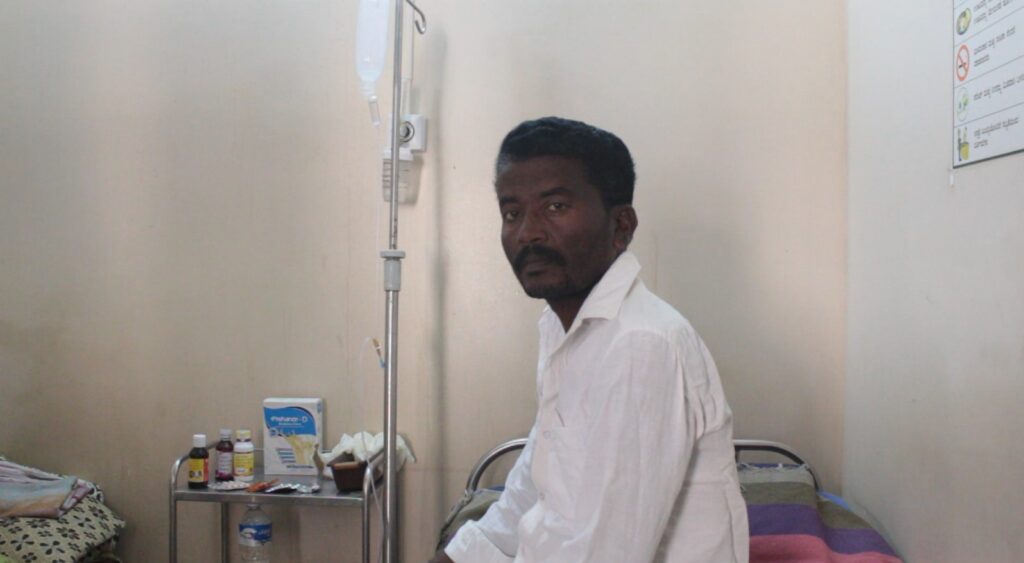
“I’m a student, within a week of diagnosis I had severe coughing, uncontrolled cough and headache,” he said.
The air quality in Gangavathi is severely affected by PM 2.5 concentration and . In winters during the harvest season the air quality index(AQI) degrades more than 85.
Doctors say frequent exposure to rice husk particles causes obstructive lung diseases. More than 40-50 patients visited the hospital in the months of October and December 2023 with symptoms like coughing and lack of breath. “There are two effects depending upon the exposure. The short term exposure is called reversible obstructive disorders while the long term exposure is irreversible. Initially it takes the form of allergic reactions like Pneumonitis and in the later stages it becomes hazardous and difficult to treat,” said Satish Raikar, a physician and surgeon.
A report from the National Institute of Health shows that exposure to rice dust can lead to lung morbidities weakening the immunity, among mill workers.
Rahim sab, a rice mill worker who was hesitant to speak about the working conditions said that sometimes it becomes difficult to breathe while working. “I’ve been a technician here for three years. I face difficulty in breathing due to pollution but it’s our job. I’m poor and I do not have any other work to do,” he said.
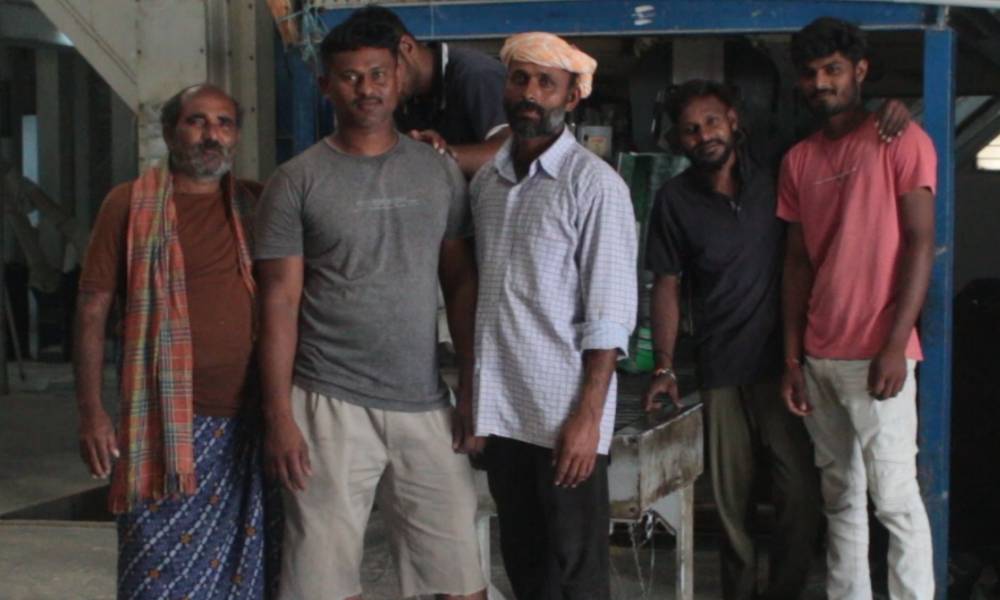
Basawaraj is the sole earner of the family. He worked as a laborer in rice fields adjacent to mills. Now, he is dependent on his daughter to take care of him while his wife works in the rice fields. His 10 year old son comes to see him everyday after school.
“After he felt ill he is getting weaker day by day, his health is deteriorating leaving him unable to even hold a glass of water properly. His family is very big, including two sons, two daughters and a wife. All of them are dependent on him. Neither he can take care of his family nor he has any work to do now,” said Basawaraj’s friend. Medical bills are taking a financial toll on his family. “The family is going through a crisis even in terms of feeding themselves. We as friends are doing what we can do like buying medicines or staying at hospital if he needs any support,” he said.
The Central Pollution Control Board has guidelines for handling of rice husk. Howevers no such measures are followed by the mill owners. “I don’t think masks or any other preventive measures are required here( mill),”said Sumit Jain, a mill owner.
Panchayat secretary said they receive complaints from villagers but are unable to take any actions. “A year ago a monitoring vehicle came to monitor the air quality, and there was a group that protested to shift these mills but I don’t know what happened after that. These mill owners have strong political connections and no one speaks against them,” he said.
Experts say that appropriate handling of husk and chimneys can prevent air pollution. “Husk can be mixed with cow dung and used as a manure as it contains silica. Inside the factory they should use sprinklers. If they do not know how to manage it would be a great problem,” said Suresh Heblikar.
Amid this health crisis, Basawaraj awaits speedy recovery so that once again he can support his family.

